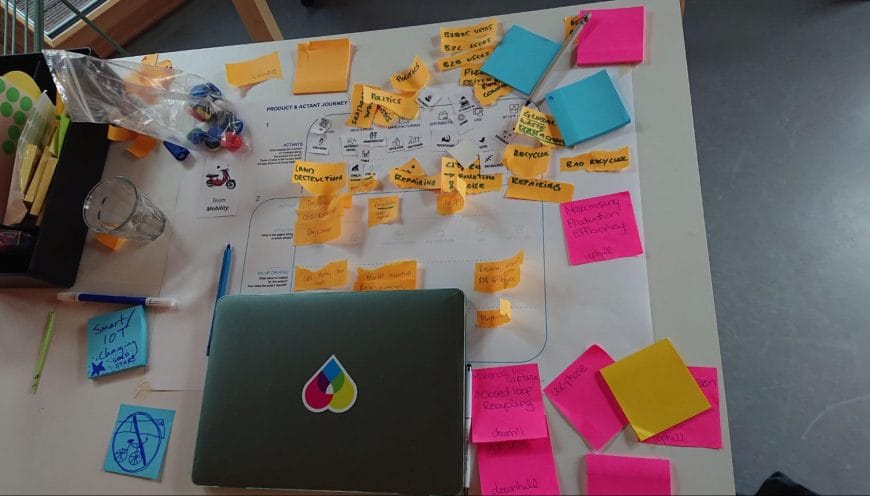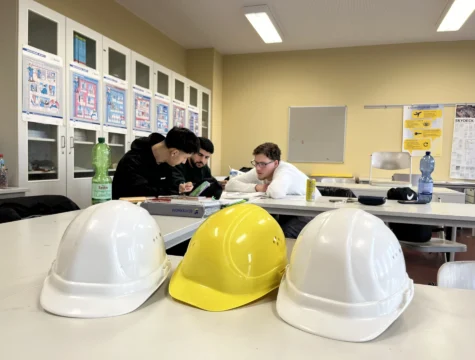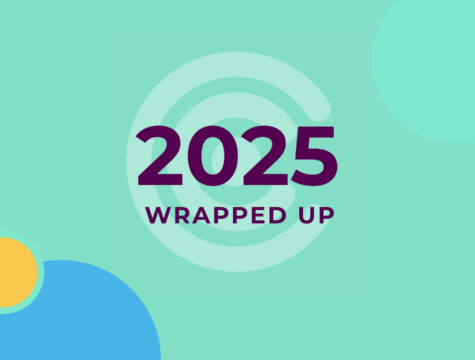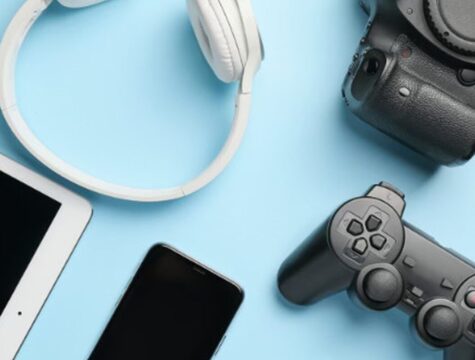It’s back-to-school time again, and because education is top-of-mind for many of us at the moment, we thought it would be a great time to discuss the role of education when it comes to the circular economy, provide a bit more insight about what the education team has been up to so far, and also give you a sneak peak into some of our future plans.
As pointed out by Unesco, “education is crucial when it comes to promoting climate action, as it helps people understand and address the impacts of the climate crisis, empowering them with the knowledge, skills, values and attitudes needed to act as agents of change. (Source)”
Education is a key part of what we do at Circular Berlin; in fact, it is one of our impact goals: raising awareness of the issues at hand, and providing resources and knowledge to initiate more circular economy activities. Our activities in this space take various forms, from implementing local research projects, creating masterclasses for aspiring entrepreneurs and developing workshops that encourage teams to consider a different approach, to organizing tours with our partners to provide real-life inspiration and first-hand examples of Berlin businesses already putting circular economy principles into action.
We have seen a significant increase in interest for the topic of circularity– with the CB education team having already more than doubled our educational activities this year, compared to last. We kicked off the year with an online workshop for visit.org to help them better understand the link between climate change and the circular economy, followed by some in-person “Intro to Circular Economy” workshops for a group of Vlerick Business School students visiting from Belgium, and some international students from Goethe Institut keen to learn more about the circular economy approach. This spring, we did a hybrid workshop for Bergische Circular (part online, part in-person) and also developed a digital toolbox workshop for diffferent, a local strategic consultancy based in Berlin.
In addition to workshops, we conducted a total of 12 different masterclasses for aspiring entrepreneurs, as part of the Impact Hub Circular Together accelerator program, as well as topic-specific lectures for a group of Erhvervsakademi Midtvest teachers visiting from Denmark, and for other local Berlin initiatives, such as WeTek. We also created bespoke formats for exchange and interaction with local experts via a lecture + Expert Q&A format for a group of experts visiting us from South Africa via the Friedrich-Neumann Stiftung, as well lecture and tour formats for a group of international entrepreneurs visiting Berlin as part of a local program with Mesopartner, and for JARO Institut e.V., a German non-profit focused on sustainability and digitalization.



Our work goes beyond simply imparting knowledge about the theory and practices of the circular economy, and sharing tools and resources that can help businesses, students, and startups modify their approach, it’s also about cultivating a shift in mindset — enabling teams to better understand the link between climate change and the circular economy, and encouraging them to apply a more systems thinking approach.
Systems thinking, put simply, is “the ability to understand how the parts of a system interact to produce the behaviour of the whole,” instead of analyzing individual parts in isolation (Source). Ultimately, it is about recognising that a sustainable economy is not modeled on a machine where you extract something from the earth, create something, and then discard it. But rather, it is more like a forest — something that is interdependent on the environment and society in order to be viable in the long-term.
This shift in mindset, and change in approach for analyzing problems and identifying opportunities is a skill which needs to be introduced early-on, especially if we want the younger generation to question ”business-as-usual” and demand real change. That’s why we have plans to make our CE masterclasses available in an online cohort environment, and have also applied for funding to develop a circular education toolkit for Berlin teachers and students.
Robert Boyce, a historian and economist, says, “Knowledge is power. Knowledge shared is power multiplied.”, and we couldn’t agree more. If we are to create systematic change–fundamentally altering the way things are produced and consumed–then education is our best bet for creating a shift in mindset and developing the skills and systems thinking approach necessary for a more sustainable future.
If you are keen to expand your knowledge around the circular economy, and would be interested in a workshop, masterclass, tour or customized expert experience, or if you simply want to support or collaborate with us on our knowledge-building activities, please drop us an email. We’d love to hear from you.
The article is prepared by Meg Koch.




